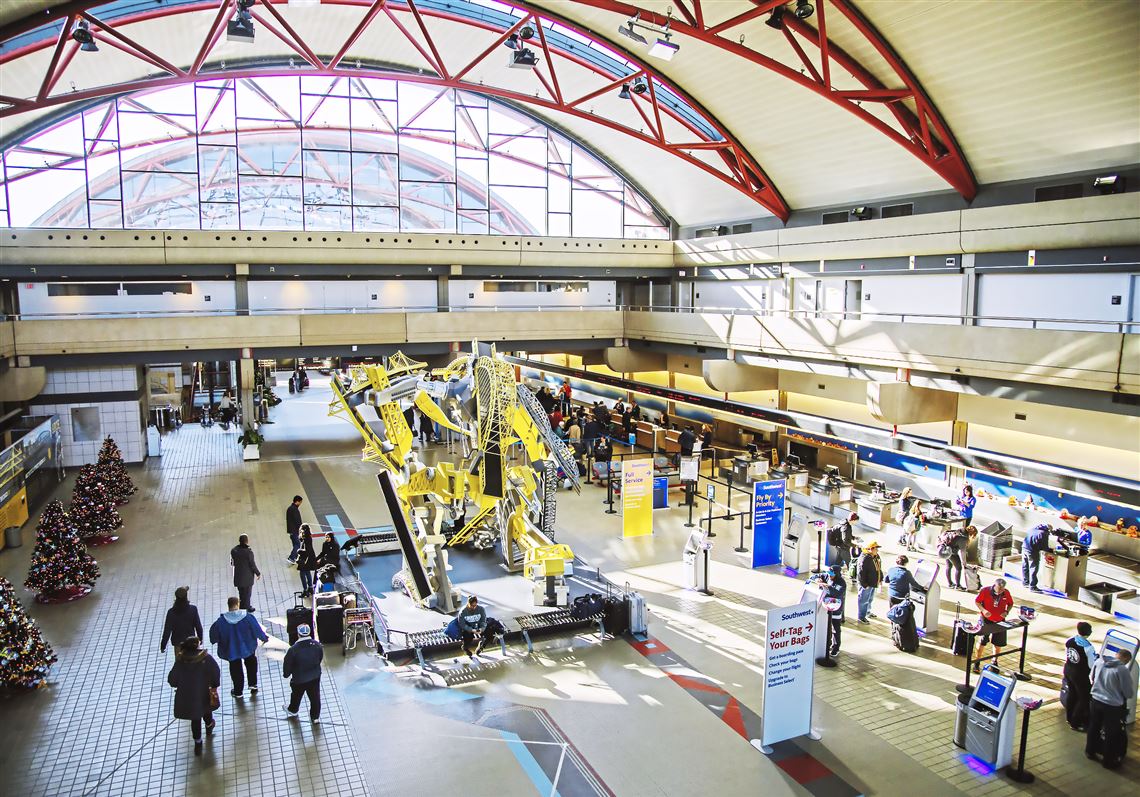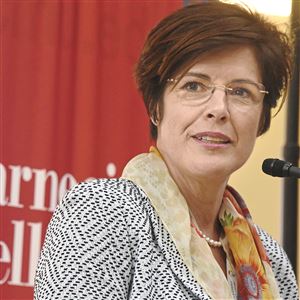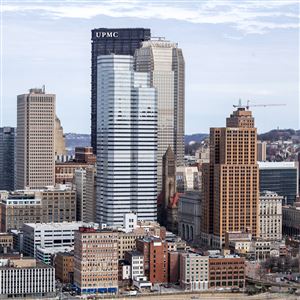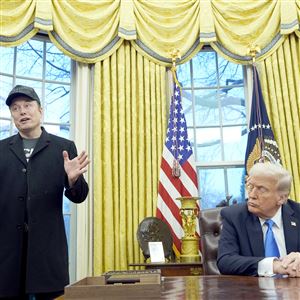The cost of flying out of Pittsburgh International Airport is expected to be a little lighter for airlines next year.
A $112.3 million budget for 2019 approved by Allegheny County Airport Authority board members Friday lowers the per passenger cost to the airlines by 95 cents to $10.35.
It marks the sixth straight year the cost per enplanement, an industry benchmark, has come down. The rate was as high as $14.97 in 2011.
The decreases have been subsidized in part by oil and gas revenues from drilling on airport land and state gambling funds.
Christina Cassotis, the authority’s CEO, also attributed the reduction to passenger growth and the fact that much of the midfield terminal debt dating back to 1992 has been paid off. The more passengers passing through the airport, the lower the cost per enplanement.
“We’re trying to be as competitive as possible. That’s the whole sell to the airlines,” she said.
The $112.3 million budget is a 3 percent increase over this year. The board also approved a $129.6 million capital spending plan that includes $75 million earmarked for a planned $1.1 billion terminal modernization.
That money is designated for design costs and the potential relocation of airlines or jetways.
As currently proposed, the modernization includes a new $783.8 million building for ticketing and security that would be tucked inside two existing arms of the airside building, used for boarding and getting off planes.
It would replace the airport’s landside building, now used for ticketing, security and baggage claim. That building would either be demolished or repurposed.
Under the plan, the tram that whisks travelers between the landside and airside buildings would be eliminated and the number of gates reduced from 75 to 51. A 3,000-space parking garage also would be built.
While Ms. Cassotis gave an upbeat report Friday regarding most airline activity at Pittsburgh International, that did not apply to the return of OneJet, the regional business carrier that suspended service from Pittsburgh and other markets Aug. 29.
“OneJet? No. I’m not expecting to get OneJet back,” Ms. Cassotis said when asked about the airline.
“OneJet hasn’t talked to us. I have had no conversations with OneJet, no communication to or from OneJet. None. Zero.”
The authority is suing the airline to recoup $763,000 of the $1 million subsidy it gave to the carrier to provide flights to 10 destinations, including new seven markets.
While OneJet did reach 10 destinations at one point, it was down to Hartford and Indianapolis when it suspended service across its network in August while it moved “its operations to a fully-owned 135 operating certificate over the next eight weeks.”
In its lawsuit, the authority claims the airline was required to maintain round-trip nonstop service at least five days a week for at least five years to the new destinations under a 2016 agreement.
Meanwhile, two airport authority board members who invested in OneJet have given up their stakes after the board enacted a policy last month that barred such investments.
Robert Lewis, board vice chairman, answered “yes” when asked if he had given up his investment but had no other comment. The other board member, Jan Rea, did not attend the meeting. She also has divested, according to authority solicitor Jeffrey Letwin.
In addition to the authority’s lawsuit, three investors in OneJet are trying to force the airline into bankruptcy to recover $4.8 million in loans.
The involuntary petition for Chapter 7 bankruptcy filed this week in U.S. Bankruptcy Court for the Western District of Pennsylvania states that Vesper Capital LLC. is owed $4.5 million; Keith Kronk, $150,000; and James and Debbie Campbell, $150,000.
Their attorney, Kirk Burkley, said the petition was filed because “lots of creditors have been unpaid. They’re not getting information. They don’t know where their money went and we need transparency.”
Vesper Capital, Mr. Kronk and the Campbells lent the airline money but have not received any repayments, Mr. Burkley said. Four additional creditors came forward Friday claiming they were owed a combined $600,000.
Matthew Maguire, OneJet CEO, could not be reached for comment.
The airline also is facing a federal tax lien for the nonpayment of $621,556 in excise taxes.
Mark Belko: mbelko@post-gazette.com or 412-263-1262.
First Published: October 19, 2018, 10:21 p.m.

















